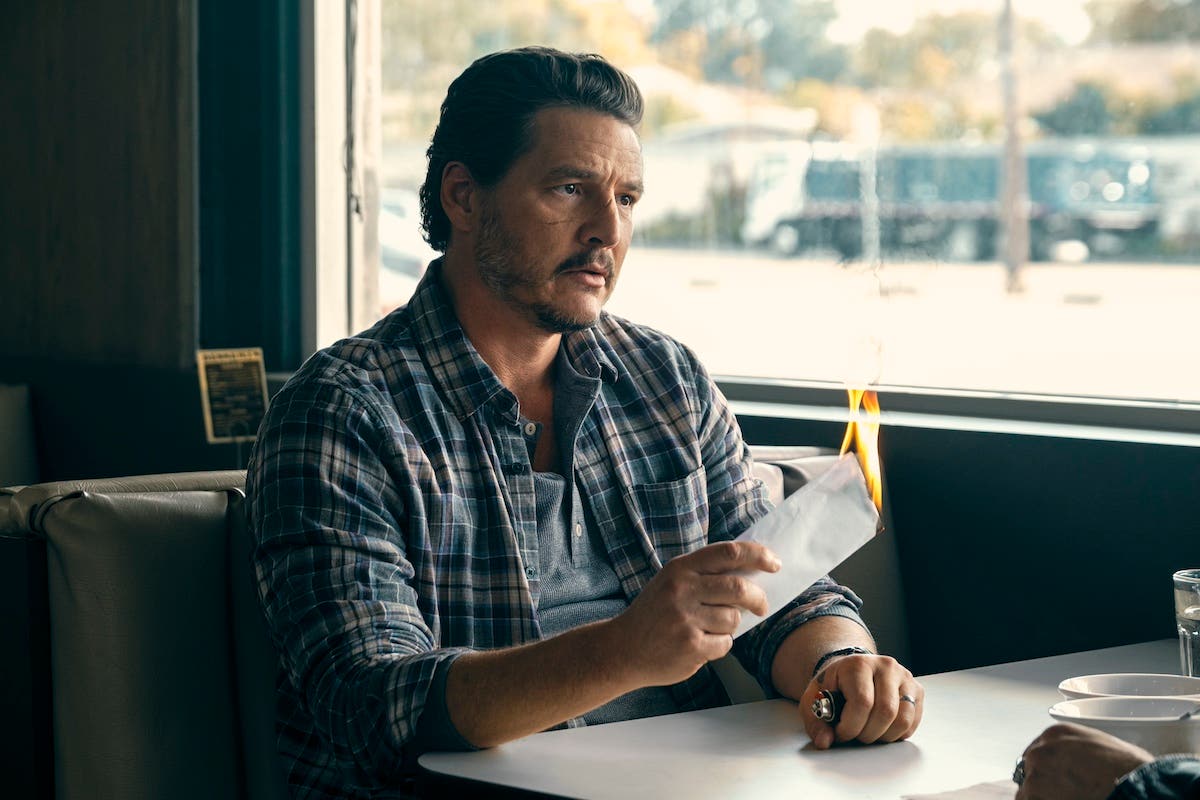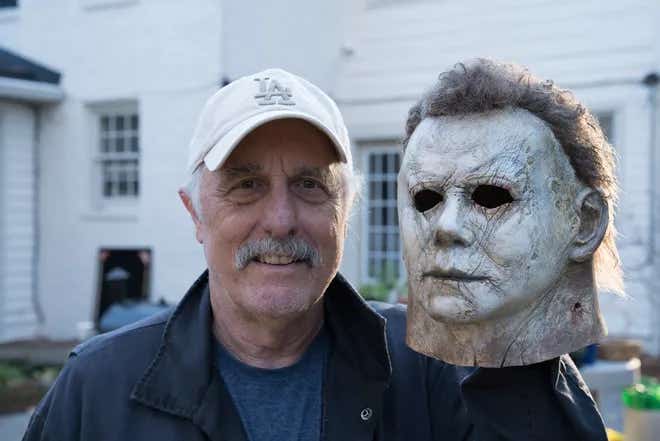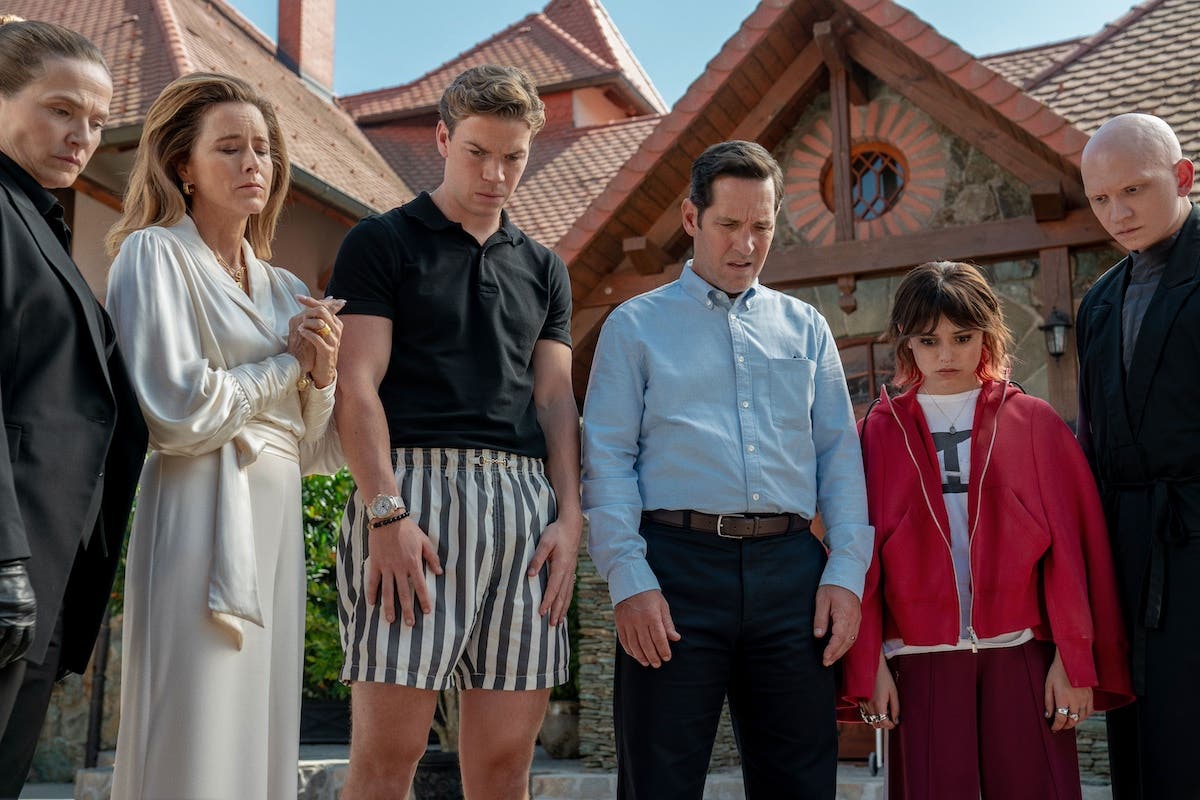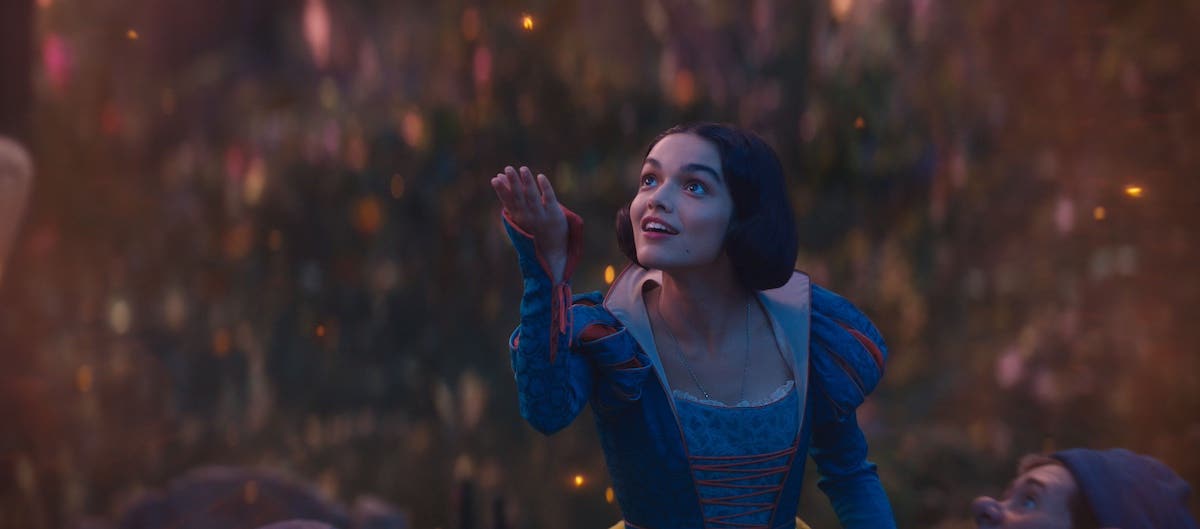‘Vikings’ Michael Hirst On Writing a TV Series Solo, the Critics and Historical Accuracy
Michael Hirst spoke to Script from his home in Oxfordshire while in the midst of writing Season 3 of ‘Vikings’ and addressed a number of topics, including how he found his niche in historical drama.
Joshua Stecker is a freelance entertainment journalist based in Los Angeles. His bylines include The Hollywood Reporter and Death & Taxes Magazine. Stecker is the former west coast/web editor of Script Magazine. Follow him on Twitter at @joshuastecker.
Michael Hirst is one of those rare breed of screenwriters that found their niche early and stuck with it.
The British screenwriter, known mostly to American audiences for his critically acclaimed drama, Elizabeth (starring Cate Blanchett), had strictly been a features writer specializing in historical dramas until opportunity knocked when he was approached by Showtime to pen a television series based on the life of Henry VIII, The Tudors.
Even though the drama, which debuted in 2007, was met with critical praise, notable English history experts questioned the historical accuracy and took issue with some of the Hirst's creative liberties. Nonetheless, The Tudors would last 38 episodes and, after the series ended in 2010, Hirst would set his sights on another historical target that has had its fair share of Hollywood interpretations: the Vikings.
Debuting to critical and popular praise on History last year, Vikings, which stars an ensemble cast that includes Travis Fimmel, Clive Standen and Jessalyn Gilsig, just finished its second season run in May with a third season on the way next year. The series was ranked as the number one new cable series in 2013, averaging five million total viewers each week. Incredible numbers for a network not known for its scripted dramas.
Hirst spoke to Script from his home in Oxfordshire while in the midst of writing Season 3 and addressed a number of topics, including how he found his niche in historical drama, the art of writing a television series solo and how he handles the history critics.
The interview has been edited for length and clarity.
You're one of those rare breed of screenwriters that has really found their niche in historical dramas. What is it about historical drama that appeals to you so much?
Michael Hirst: I think it's several things. When I was at school, apart from sports, the only things I could really excel in were history and English, so I've sort of cleverly combined them into a career. Also, I had a very academic background and actually I thought that I was going to teach in universities. It was only a series of accidents that turned me into a screenwriter, but because of my academic background: the research element, the reading, the digging for historical records and so on, I take great pleasure and joy in what I do. And out of that reading and research and thinking, [one develops] characters, subjects and ideas. Of course, to me, these people, these characters are real. There's a historical record about them, and that is very appealing to me. Just psychologically, I've never actually connected with fantasy. I do like to think that my stuff is based on history and historical record. It's about real things and real people. And although it's not at all supposed to be educational, it's drama, but when we study other people, real people of the past, we can learn something about ourselves.
You say it's not exactly educational, but people are extrapolating a lot of education from your shows, namely Vikings and The Tudors, even though they are scripted dramas. It's certainly a testament to the work that you've done.
Hirst: I appreciate very much the response, the emails and the messages I get. And certainly I got this a lot on The Tudors from teachers and people in universities. And now they're saying I've reanimated the subject. The kids really want to know about the Tudors now and the Vikings. And in class, they're exploring the differences between what was in the show and the history books. It's got people excited about history, because for a lot of people, history used to be a dull subject.
After The Tudors series ended in 2010, why did you move to the Vikings? What was the inspiration behind creating the series?
Hirst: Well, a lot (laughs). There was a lot of chance involved. I was asked to write [a script on] Alfred the Great, who's another great English king. Alfred the Great fought the Vikings, so I was doing research into Alfred and then I was trying to find out things about the Vikings. It's an interesting process to try and find things about them and their pagan beliefs. I thought they had very bad press (laughs). What I learned about them was stimulating and interesting in that they were more advanced than other societies. Nothing happened with the Alfred the Great movie, but way back in 1996 or '97, when I was doing the research, I would say to people I'm writing an Alfred the Great film and everyone would go, 'Okay, that's good. That's interesting.' And about three years later, MGM came to me asking if I was interested in doing a TV show about the Vikings, and I was like, 'You bet!' I was full of ideas, and then when I told people I was writing about the Vikings, their whole response was different. It was like, 'That's fantastic! I can't wait to see that! How are you gonna tell that story?' And I realized that in just over 10 years, the whole game had changed and somehow the Vikings were in the zeitgeist and people were interested. There was a ready and waiting audience out there for the Vikings. It was fantastic. So all these things came together at the time.
You have sole credit on every episode of The Tudors and every episode of Vikings, correct?
Hirst: Yes.
There's no other credited writers, so is there no writers room? Or is it all just you?
Hirst: It's just me.
Can you describe your writing process on Vikings?
Hirst: Well, it's the same as The Tudors. You have to remember that I had a movie career for a long time. I didn't know that I could write series TV. When Ben Silverman and Showtime asked me to write The Tudors, I had no idea how to do it. And I had no idea whether I could do it. I found that it was fantastic. I really enjoyed the longer form. I liked the freedom and opportunity to develop the characters and adjust, and I enjoyed threading in different storylines and stuff like that. So I just kind of found my niche in a way. That's what I seem to be good at and therefore I didn't want to give it away! (laughs) Perhaps it's a little selfish or power crazy or something, but I was able to do it. It was a great boon to production just to have to deal with one ego, you know, and not the room full of egos. And it meant that it was a pretty good machine. Everyone got the scripts quite early, so everyone knew what they had to do. There's a lot of chaos in TV production just because too many people interfere with scripts. Too many people have ideas about scripts and what's good and what's bad. And it's actually a bad thing to have too many voices. It doesn't improve a script. It nearly always makes a script worse if you have a lot of people just, you know, chipping in. So when we started Vikings, it was on the same principle because I was in Ireland again, it was the same crew, it was some of the same directors [as The Tudors]. It was the same machine. And I'm also pretty accommodating to the principal actors. So I talk to them about their roles. Some of the actors have very strong opinions and ideas. A lot of my time is spent trying to work out whether I agree or don't agree how to deal with this. I think there's an advantage that it's just one person's vision. So everyone knows where they are and I can drive the episodes and the season through and I have this overall sense of the geography of the series and where we're going and where the characters are going. I do think that can be helpful. I'm not saying it would work in every circumstance and it may well be that I would benefit from having other writers. I'm not saying that I wouldn't. It's just not something I've experienced. It's something I'm slightly nervous about, but I'm writing Season 3 now and I'm just having such a blast. I'm having such fun. Why would I give it up, you know?
How far along in the season do you write before the cameras start? Do you have the whole thing plotted out? Do you have the whole season ready to go before the cameras roll? If not, how far ahead are you?
Hirst: No, not completely. Actually, about two days ago, I finished writing the [Season 3] Bible and it's quite a detailed document. It'll be seven, eight pages for each episode and that helps me when I'm writing the episodes. So the producers and production know the Bible so they can work on what they need to start building, or find what may be a problem for them. It's useful for everyone. It brings out a lot of issues and so on. In regards to Season 3, I'm halfway through episode five at the moment. Five out of 10. And we start shooting on June 2nd. By then, I'll probably have written six episodes.
So you're basically halfway through the series before the cameras start rolling.
Hirst: Yes.
Since you're the showrunner, are you on set every day?
Hirst: I'm very specifically not. There's another show shooting up the road in Ireland with an American showrunner. It's called Penny Dreadful. It's a big, big Showtime series. And this guy's a real showrunner. I mean, he's on the set the whole time. He reviews all the footage in the evening. He hires and fires people. You know, he's very, very powerful and he's very, very hands-on. And good luck to him. It's fantastic. But I couldn't do that. I really like delegating. We have amazing people. The set designer, the costume designer, the design of the show, I've worked with these people for a while now. They are geniuses. So why would I tell them what to do? I feed off them and they feed off me. It's a wonderful creative collaboration and I've learned over the years that my principal role is to try and get the scripts right. So I spend most of my time, when I'm in Ireland or I'm here in Oxfordshire, writing the scripts, dealing with issues that actors have or production has about the scripts. But I do go on the set fairly regularly just so people know I'm there. I mean, it is supposed to be my show. So I'm there so people can ask me questions and I'm available and I'm looking at it and I love the directors. I want them to feel comfortable and I also want them to contribute. I hate the idea that they just turn up and shoot what's on the page, which I'm afraid happens rather a lot, I think, in American shows. It's an Irish-Canadian co-production, so we have Canadian directors who do a lot of work in the American network system and I can't tell you how excited they are to be let loose. We give them a huge box of toys. We're doing battle sequences with ten cameras. We have thousands of extras. We go on the water. The cast is really fighting. Everything in Vikings is real. We do use CGI, but we don't use much of it. So the fights are choreographed. They're real. The actors get hurt. They row, they ride, everything is real. And it's an amazing experience to watch it.
In regards to your research, there are critics who say some historical dramas aren't necessarily historically accurate. And we know it's a scripted drama and there is room for creative freedom, but how do you balance the historical accuracy with the dramatization of it? Is it something that you're aware of?
Hirst: Oh sure, I'm aware of it. It was a big, big issue with The Tudors. Especially in England, because people had a proprietorial interest in Henry VIII and what I was doing was wrong and inaccurate and nobody screwed in Henry VIII's court because it was too cold, there was no central heating and there were no prophylactics. (laughs) I got the weirdest kind of responses. But with Vikings, it's been completely the reverse. I talked on radio to the head of Scandinavian studies at Harvard University who's a Swedish professor and we showed him the first two episodes of the first season before they aired. I thought he was going to eat me alive. And what he said was, this is the first time his culture has ever been taken seriously and intelligently. So I'm really thrilled that in Scandinavia, it's a huge hit. The academic and intellectual response to the series has been absolutely positive and incredible.
Vikings third season will air on History in 2015.
- More articles by Joshua Stecker
- Historical Storytelling: How to Master Your Craft for a Genre Audiences Love
- History - The New 'IT' Genre On Demand Webinar
Get advice on writing historical stories with E.K. Prescott, Ph.D.'s webinar
The Historical Screenplay: Capturing the Reality of History
Joshua Stecker is a freelance entertainment journalist based in Los Angeles. His bylines include The Hollywood Reporter and Death & Taxes Magazine. Stecker is the former west coast/web editor of Script Magazine. He's also the co-founder of the Modjeska Playhouse theatre company in South Orange County. Follow him on twitter at @joshuastecker.







